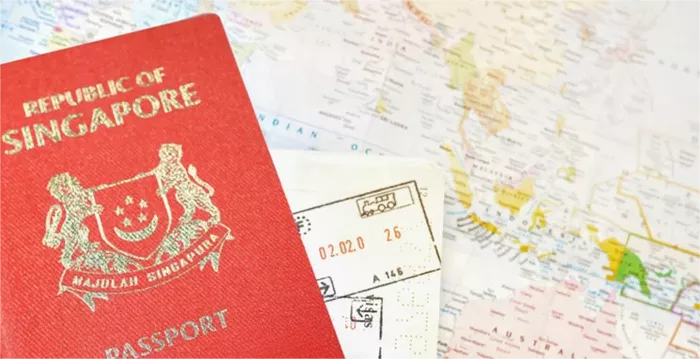Singapore, a thriving hub of commerce and innovation, attracts a plethora of international talent seeking employment opportunities. For individuals aspiring to work in this dynamic city-state, navigating the intricacies of obtaining a work visa is crucial. From understanding the various visa types to discerning the associated costs and processing times, prospective expatriates must arm themselves with comprehensive knowledge. In this article, we delve into the realm of work visas in Singapore, shedding light on the types available, associated costs, and factors influencing these expenses.
Types of Work Visas in Singapore:
Singapore offers several work visa categories tailored to suit the diverse needs of foreign professionals, skilled workers, and semi-skilled laborers. The primary types of work visas include:
1. Employment Pass (EP): Geared towards foreign professionals, executives, and managers, the Employment Pass is a sought-after visa that enables individuals to work and reside in Singapore. Key eligibility criteria include a fixed monthly salary of at least SGD 4,500 (SGD 5,000 for older applicants), relevant qualifications, and professional experience.
2. S Pass: Designed for mid-level skilled workers, the S Pass requires applicants to meet specified salary and educational requirements. Candidates must earn a minimum monthly salary of SGD 2,500 and possess relevant qualifications and work experience.
3. Work Permit: Targeting semi-skilled foreign workers in sectors such as construction, manufacturing, and domestic services, the Work Permit facilitates employment for individuals performing specific roles. Eligibility criteria vary depending on the sector and job scope, with employers responsible for obtaining the permit on behalf of their employees.
Understanding the nuances of each visa type is paramount for prospective applicants to determine their eligibility and select the most suitable option.
Cost Breakdown for Each Visa Type
Navigating the financial aspects of obtaining a work visa entails considering various fees and expenses. Here’s a breakdown of the costs associated with each visa type:
1. Employment Pass (EP): The application fee for an Employment Pass ranges from SGD 105 to SGD 225, depending on the duration of the pass. Additionally, employers are required to pay a SGD 70 issuance fee upon approval. Depending on the applicant’s nationality and medical history, medical examination fees may apply, typically ranging from SGD 45 to SGD 100.
2. S Pass: The application fee for an S Pass is SGD 75, with an issuance fee of SGD 30 upon approval. Similar to the Employment Pass, medical examination costs may apply, typically ranging from SGD 45 to SGD 100.
3. Work Permit: The cost of obtaining a Work Permit varies depending on the sector and duration. For example, the application fee for a Work Permit in the construction sector is SGD 35, with additional levy fees imposed on employers for hiring foreign workers. Security bonds may also be required in certain cases, with amounts ranging from SGD 5,000 to SGD 10,000 per worker.
It’s essential for applicants and employers alike to factor in these expenses when budgeting for the visa application process.
Factors Influencing Costs
Several factors can influence the overall cost of obtaining a work visa in Singapore:
1. Salary: Visa application fees and eligibility criteria often correlate with the applicant’s salary level. Higher salary thresholds may apply for certain visa categories, impacting both the application process and associated costs.
2. Nationality: Singapore imposes quotas and levies on certain nationalities, particularly for Work Permits in specific industries. These restrictions can affect the availability of visas and may entail additional expenses for employers.
3. Employer Type: Different rules and requirements may apply to employers based on their industry and business profile. Small and medium-sized enterprises (SMEs) may face distinct challenges and costs compared to multinational corporations when sponsoring foreign employees.
Understanding these factors can help applicants and employers anticipate potential expenses and navigate the visa application process more effectively.
Processing Time for Visa Applications
The processing time for work visa applications in Singapore can vary depending on various factors, including the volume of applications and the completeness of documentation. While the Ministry of Manpower (MOM) strives to process most applications within weeks, applicants should allow for sufficient lead time to account for unforeseen delays.
1. Employment Pass (EP): The processing time for an Employment Pass application typically ranges from three to eight weeks, although certain cases may take longer to review.
2. S Pass: S Pass applications are usually processed within three weeks, barring any exceptional circumstances or additional documentation requirements.
3. Work Permit: The processing time for a Work Permit application varies depending on the sector and specific job role. While some permits may be approved within days, others may take several weeks to process, especially if additional scrutiny is required.
Prospective applicants should plan their timelines accordingly and ensure that all required documents are submitted promptly to expedite the processing of their visa applications.
Conclusion
In conclusion, obtaining a work visa in Singapore entails navigating a multifaceted process that involves understanding the various visa types, associated costs, and processing times. By familiarizing themselves with the intricacies of the visa application process, prospective expatriates can streamline their journey towards securing employment opportunities in the vibrant metropolis of Singapore.


